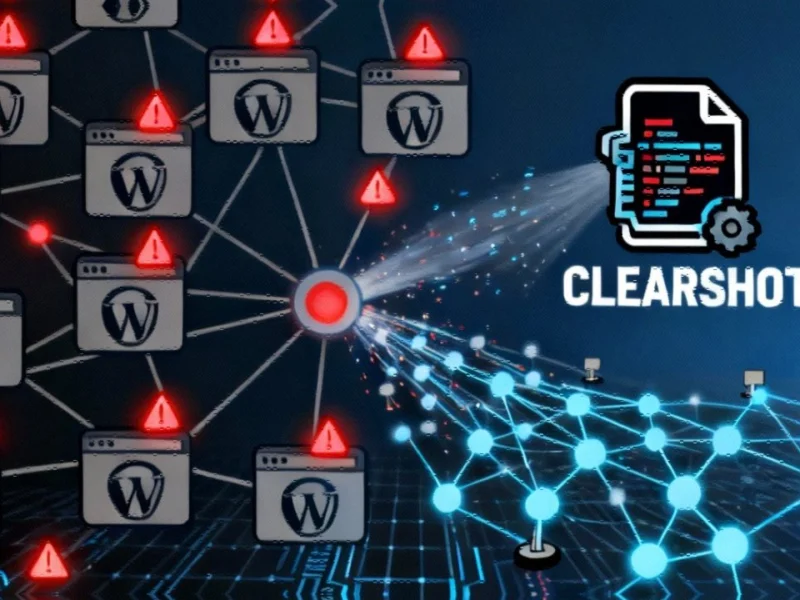Dominic Cummings, former Chief Adviser to Prime Minister Boris Johnson, has ignited a political firestorm with explosive claims that Chinese state-sponsored hackers maintained persistent access to highly classified UK government systems for “many years,” compromising what he describes as “vast amounts” of sensitive intelligence data. The allegations have drawn swift denials from government officials and cybersecurity experts, creating a contentious divide over the security of Britain’s most protected digital infrastructure.
According to Cummings’ interview with The Times, the security breach affected systems handling “Strap” classified information – the highest level of security classification used by the UK government for documents considered extremely sensitive. The former adviser claims he and Prime Minister Johnson were briefed about the compromise in 2020, with the stolen data reportedly including intelligence service materials and documents from the National Security Secretariat. As detailed coverage of the UK government systems allegedly compromised by Chinese actors indicates, the situation represents one of the most serious cybersecurity allegations in recent memory.
The controversy deepens with reports from The Spectator suggesting the Cabinet Office initiated an investigation after Beijing allegedly acquired a company controlling a data hub used by Whitehall departments for classified information storage. This development raises critical questions about supply chain security and foreign ownership of critical infrastructure components.
Official Denials and Expert Counterclaims
The Cabinet Office has categorically denied Cummings’ assertions, with a spokesperson telling The Telegraph that “the claim that the systems we use to transfer the most sensitive information have been compromised were untrue.” The rebuttal was reinforced by Professor Ciaran Martin, former chief executive of the UK’s National Cyber Security Centre, who told BBC Radio 4 that to his knowledge, the claims were “categorically untrue.”
Professor Martin emphasized the fundamental differences between standard internet systems and the bespoke infrastructure used for highly classified information: “They’re built, monitored, secured, and operated in an entirely different way than normal internet-based systems. It doesn’t follow that… they [China] can somehow penetrate these entirely bespoke systems and there wasn’t any evidence in 2020 that they did so.”
The Technical and Political Implications
Cummings’ description of the compromised data as “extremely secret and extremely dangerous for any foreign entity to control” underscores the potential national security implications. His warning that “if they’re not secret, then there are very, very serious implications for it” suggests broader concerns about intelligence methodology and source protection.
The timing of these revelations coincides with increasing global focus on cybersecurity threats, particularly as nations grapple with sophisticated state-sponsored operations. While technology companies like OpenAI continue to evolve their content policies, government systems handling classified information operate under entirely different security paradigms and protocols.
Broader Cybersecurity Context
This controversy emerges against a backdrop of escalating cyber tensions between Western nations and state actors. Professor Martin acknowledged that “China is a consistent and serious cyber security threat,” while maintaining the distinction between general cybersecurity threats and the specific systems designed to protect the UK’s most sensitive information.
The debate highlights the evolving nature of digital espionage and the challenges governments face in securing critical infrastructure. As advancements in AI and data processing technologies continue to transform security landscapes, the methods for both protecting and penetrating secure systems become increasingly sophisticated.
Political Fallout and Potential Inquiry
Cummings has offered to testify before Parliament if an official inquiry is launched, stating he would be “happy to talk about it” with MPs. This positions the controversy not just as a cybersecurity matter but as a significant political issue with potential implications for government accountability and transparency.
The conflicting narratives between a former senior government adviser and current officials create a complex picture that may require independent verification. The situation demonstrates the challenges in balancing national security concerns with public accountability, particularly when allegations involve sophisticated cyber operations by foreign states.
As the UK government navigates these serious allegations, the incident serves as a reminder of the persistent threats facing national security infrastructure and the importance of robust, verifiable security measures for protecting sensitive government information in an increasingly interconnected digital world.
Based on reporting by {‘uri’: ‘techradar.com’, ‘dataType’: ‘news’, ‘title’: ‘TechRadar’, ‘description’: ”, ‘location’: {‘type’: ‘country’, ‘geoNamesId’: ‘2635167’, ‘label’: {‘eng’: ‘United Kingdom’}, ‘population’: 62348447, ‘lat’: 54.75844, ‘long’: -2.69531, ‘area’: 244820, ‘continent’: ‘Europe’}, ‘locationValidated’: False, ‘ranking’: {‘importanceRank’: 159709, ‘alexaGlobalRank’: 1056, ‘alexaCountryRank’: 619}}. This article aggregates information from publicly available sources. All trademarks and copyrights belong to their respective owners.



